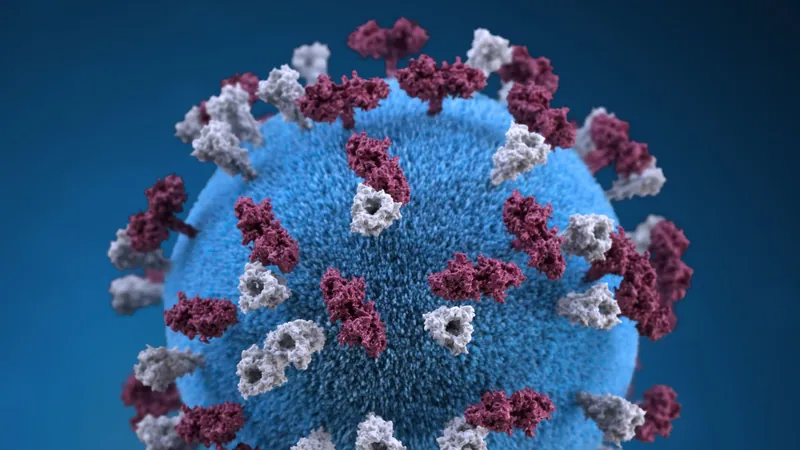
Are Plant Proteins Being Unfairly Labeled as Unhealthy? New Study Reveals Surprising Findings!
2025-04-14
Author: Jacques
The Controversial Classification of Plant-Based Proteins
Are plant-based proteins getting a bad rap? A groundbreaking study from the University of Turku in Finland suggests that the widely-used classification systems like Nova and Poti fail to accurately reflect the nutritional value of these foods. Researchers argue that simply categorizing them as unhealthy ultra-processed foods (UPFs) overlooks their inherent health benefits.
Unlocking the Secrets of Phytochemicals
In a deep dive published in the Nature Food journal, eight conventional meat products and 168 plant-based proteins were analyzed for their biochemical compositions. The study focused on phytochemicals—bioactive compounds that pack a serious punch in terms of health benefits. According to Kati Hanhineva, a professor of food development, we currently consume only 0.5-1g of phytochemicals daily, but much remains unknown about how different processing techniques affect these essential compounds.
Processing vs. Health: A Dilemma
The researchers emphasized that classification systems like Nova often mischaracterize foods containing beneficial bioactive compounds as processed or ultra-processed. This mislabeling might mislead consumers into avoiding nutritious options. A prime example is the exploration of soy products, where lighter processing techniques, such as tofu or soy chunks, showed higher levels of beneficial phytochemicals compared to heavily processed vegan steaks.
Fermentation: A Game Changer?
The study highlighted fermentation as a transformative process, especially in tempeh, where isoflavonoids became more easily absorbent due to microbial activity. However, many fermented tempeh products still fall under the UPF category in current classifications, underscoring the need for a more nuanced understanding of food processing.
Shifting Perspectives on Processed Foods
It's crucial to rethink our approach to processed foods. While certain UPFs have been linked to adverse health effects, not all processing is detrimental. Ville Koistinen, a research fellow, emphasizes that the nutritional components and how our bodies absorb them ultimately determine a food's healthiness. Even unprocessed foods often undergo some form of processing, like cooking at home.
Rethinking Consumer Choices
The classification of UPFs focusses on processing techniques and added ingredients, yet the study points out that foods like tofu and tempeh are unfairly labeled as ultra-processed, especially when consumers often prepare them similarly at home. This study aligns with ongoing debates about food technology, challenging the negative connotations associated with processed plant-based meat.
A Call for Revolutionary Change
The findings are particularly timely, as discussions around UPFs have sparked controversy in nutrition circles, with figures like US health secretary Robert F Kennedy Jr advocating for their removal from school lunches. The researchers argue that while most UPFs are indeed unhealthy, phytochemical-rich options shouldn’t be automatically grouped with sugary sodas and convenience foods.
Ultimately, a refined classification system could guide consumers in making healthier, more informed choices, allowing them to embrace nutritious UPFs like tempeh without hesitation. Combining taste, price, and convenience, the food landscape is ripe for a re-evaluation that could lead to healthier diets overall!









 Brasil (PT)
Brasil (PT)
 Canada (EN)
Canada (EN)
 Chile (ES)
Chile (ES)
 Česko (CS)
Česko (CS)
 대한민국 (KO)
대한민국 (KO)
 España (ES)
España (ES)
 France (FR)
France (FR)
 Hong Kong (EN)
Hong Kong (EN)
 Italia (IT)
Italia (IT)
 日本 (JA)
日本 (JA)
 Magyarország (HU)
Magyarország (HU)
 Norge (NO)
Norge (NO)
 Polska (PL)
Polska (PL)
 Schweiz (DE)
Schweiz (DE)
 Singapore (EN)
Singapore (EN)
 Sverige (SV)
Sverige (SV)
 Suomi (FI)
Suomi (FI)
 Türkiye (TR)
Türkiye (TR)
 الإمارات العربية المتحدة (AR)
الإمارات العربية المتحدة (AR)